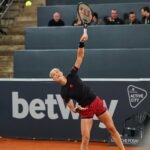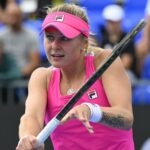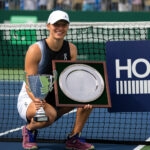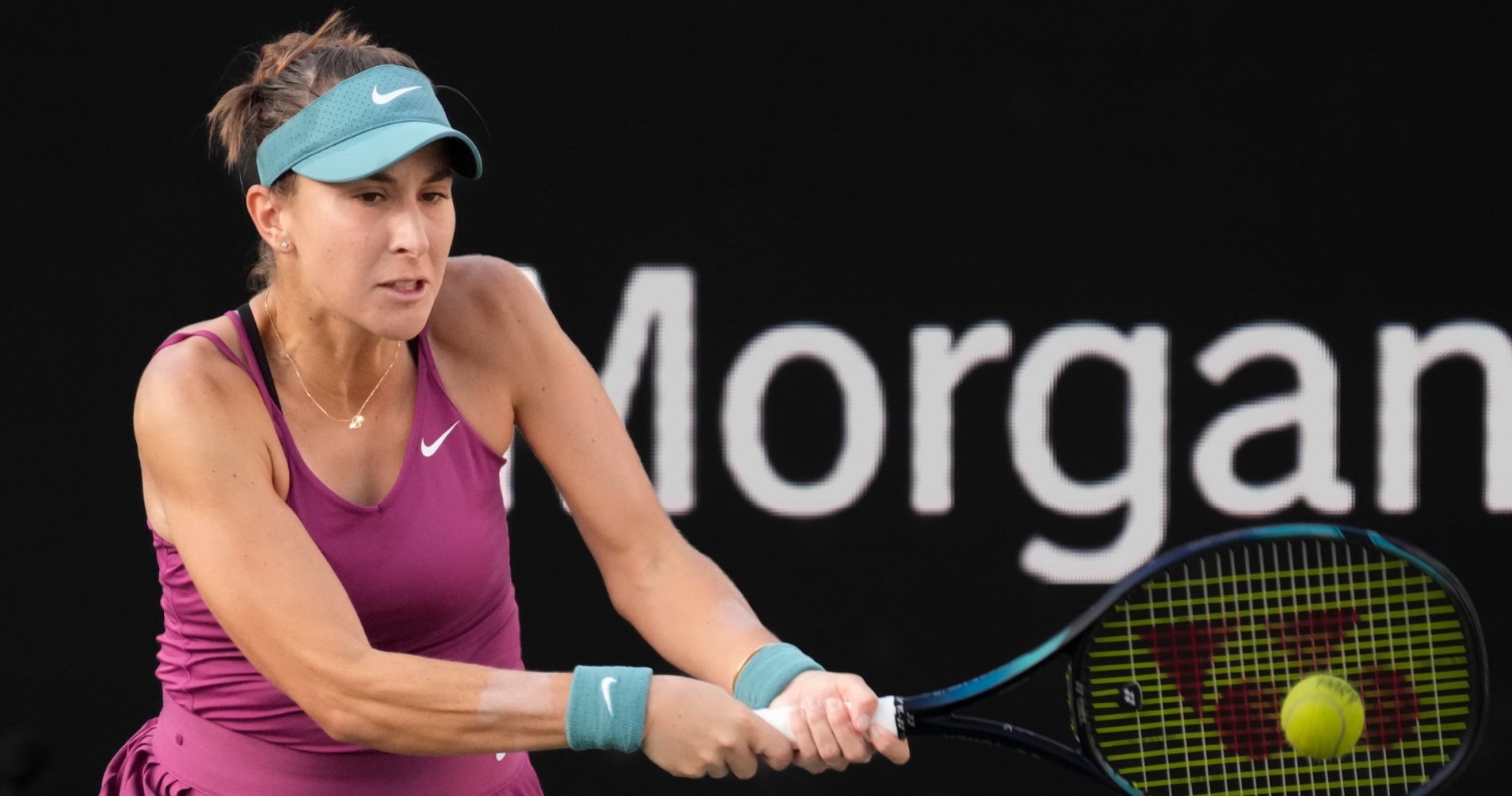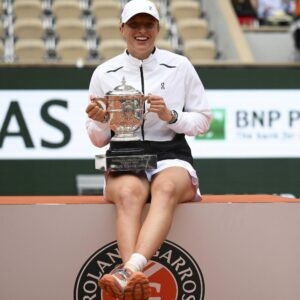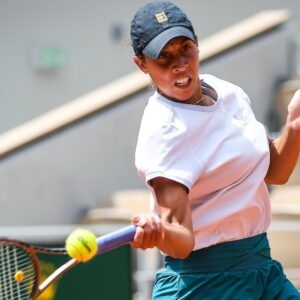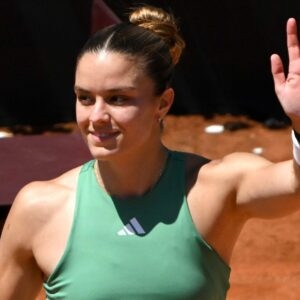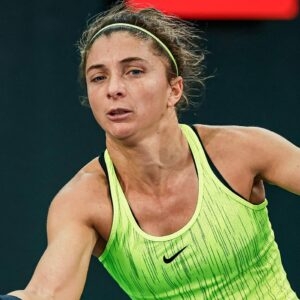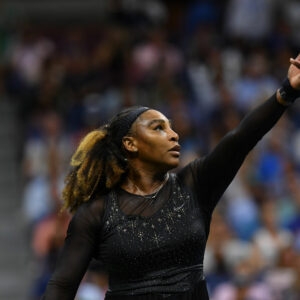Exclusive interview: Resurgent Arantxa Rus revelling in “second career” after move to Spain
The Dutchwoman has lost 18 of her last 19 Grand Slam main draw appearances but has broken into the world’s top 50 and believes the best is yet to come
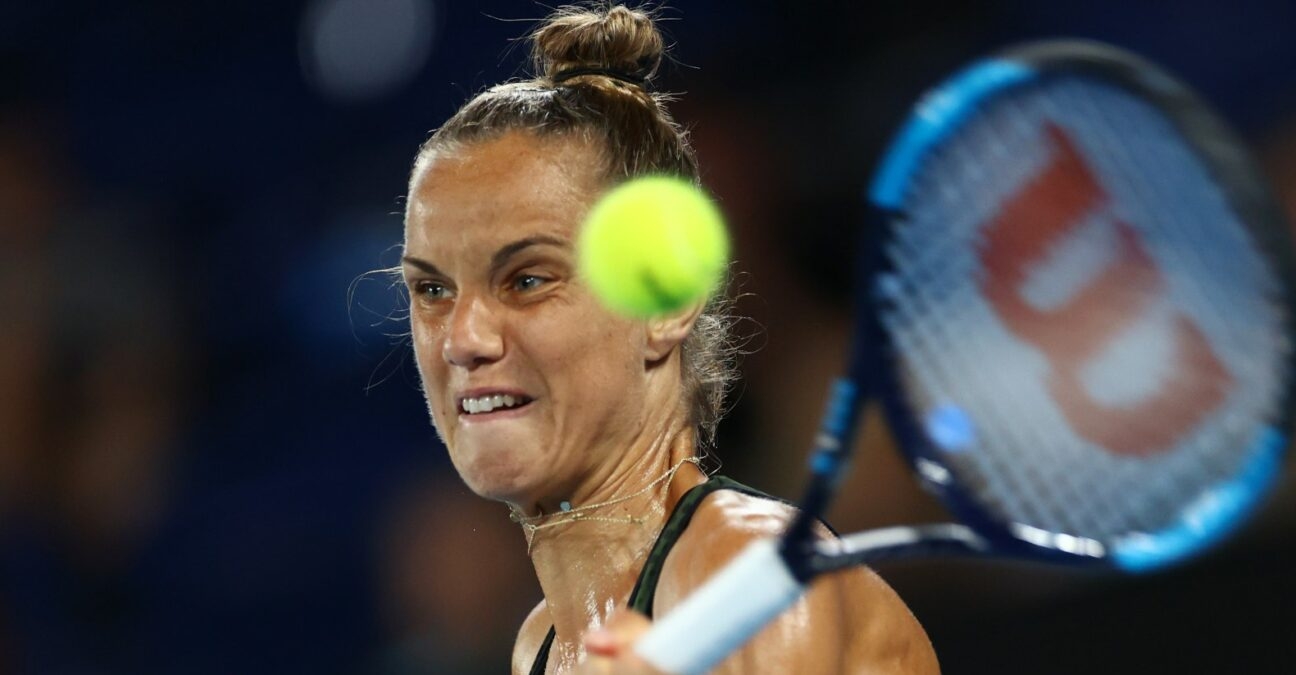 Arantxa Rus, Australian Open 2020, Panoramic
Arantxa Rus, Australian Open 2020, Panoramic
Tennis loves a statistic but as everyone knows, statistics can be misleading.
Arantxa Rus begins her 29th Grand Slam event at the US Open on Tuesday, taking on the No 17 seed Madison Keys, a former runner-up at Flushing Meadows.
But the 32-year-old Dutchwoman also goes into the event having lost in the first round in her past 11 Grand Slam matches. Going further back, she has lost in the first round in 18 of her past 19 slam main draw appearances.
For some, that would be more than a hint of fragility at the very top level and without doubt, there have been times in her career when Rus has struggled for belief. However, as anyone who deals with statistics knows, they can also be deceptive, and rarely tell the whole story.
For Rus, the most important statistic is that in 2023, after a career spent mostly around the 100 mark in the rankings, she has broken through, cracking the top 50, winning her first WTA title in Hamburg. Though she would like nothing more than to show her true self in Grand Slams, win or lose against Keys on Tuesday, she is confident that she is not only where she belongs, but can go much higher than her ranking of 44.
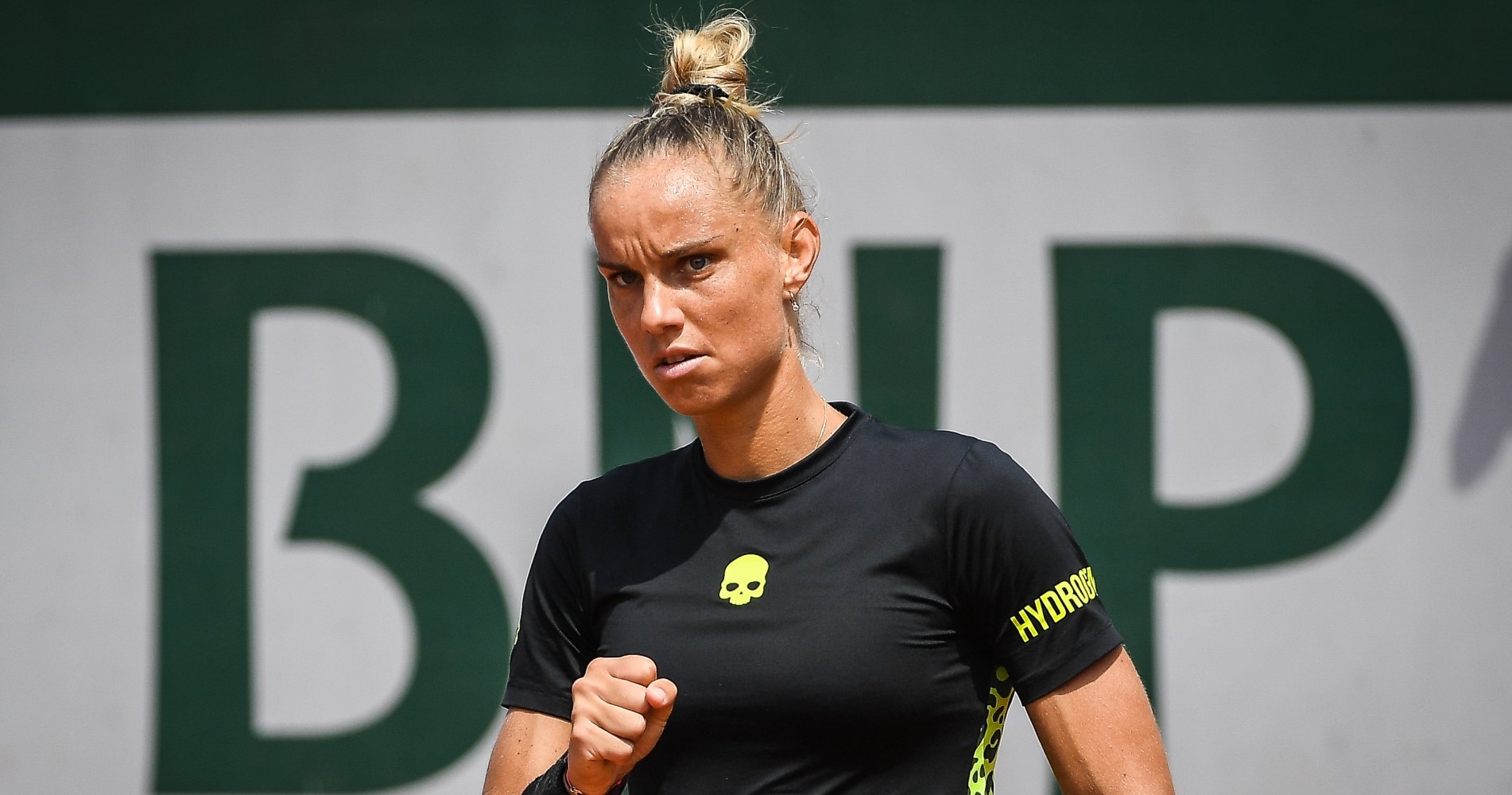
“I think people from outside, they look at the statistics, the wins, of course,” Rus said, in an interview at the US Open on the eve of the competition.
“But I don’t really care what people is saying or thinking. I have a good team, so we talked about this, we try to improve things and I’m very happy that I’m top 50 now.
“I don’t really think about it because a lot of times I had tough draws, good matches and this year actually it’s the first time now I’m main draw again, because all the time this year I had to play qualies, so for me it’s already good to be straight in, also financially and everything.
“Of course I focus on my game and what I have to do and, and I hope the results come. But if I focus on win, lose, win lose, I can’t control that. I just have to think about the way I have to play, working hard and see because I play Madison Keys, another good player. I cannot change the statistic. I hope I win, but if I don’t, I don’t.”
Early career highs led to increased expectations
As a junior world No 1 and a junior champion at the Australian Open, Rus entered the senior Tour with big ambitions. And there were some big wins early on too. She beat Kim Clijsters at the 2011 French Open and then took out the Australian Sam Stosur at Wimbledon. Both those two players won slams in those years.
But those wins also built pressure, especially in a country like the Netherlands, which had not had much success on the women’s side. Dealing with that was not easy for Rus, whose shyness made her want to hide away from the limelight, to escape the pressure.
“The Netherlands, of course, it’s a small country, not too many tennis players, so all the eyes are on you, especially if you’re No 1 in juniors,” she said. “I won the Australian Open, I think it was like history for Netherlands, I don’t know. I think that’s the first one that somebody won.
“I was not ready for it or the pressure. I don’t think you are never ready because you cannot prepare for that. If I could change that now, maybe I would try to be more open, maybe have a bigger team or people that I can talk about it too.
“I think I put too much inside. I love tennis, but if you are very young and you have this this pressure from one to another day with the media, with everything, for me it was very hard.”
Tough draws in Grand Slams
It didn’t help that every time Rus found herself in a Grand Slam event, she almost invariably came up against bigger, most established, more experienced players.
Though she also lost to some players she might have hoped to beat, Rus lost twice to Serena Williams, without doubt the greatest female player of all time.
She was beaten by Caroline Wozniacki, who had been world No 1, by Italian clay-court expert Sara Errani and by Keys, her opponent in the first round here. In the last two years alone, she’s lost to world No 1 Iga Swiatek, Belinda Bencic, Maria Sakkari and Elena Rybakina, all top-10 players.
Move to Spain the key to rising fortunes
Rus admits she didn’t handle expectations well or handle it well when she was struggling for results. But at the same time, she knew that something had to change and a chance meeting with her now-coach Julian Alonso, the former Spanish player, was the catalyst for her resurgence.
After a year or so going to and from the Netherlands to Alonso’s base in Spain, Rus decided to go all in, packing her bags and moving countries. It was a bold, brave move and one that initially was not clear would work.
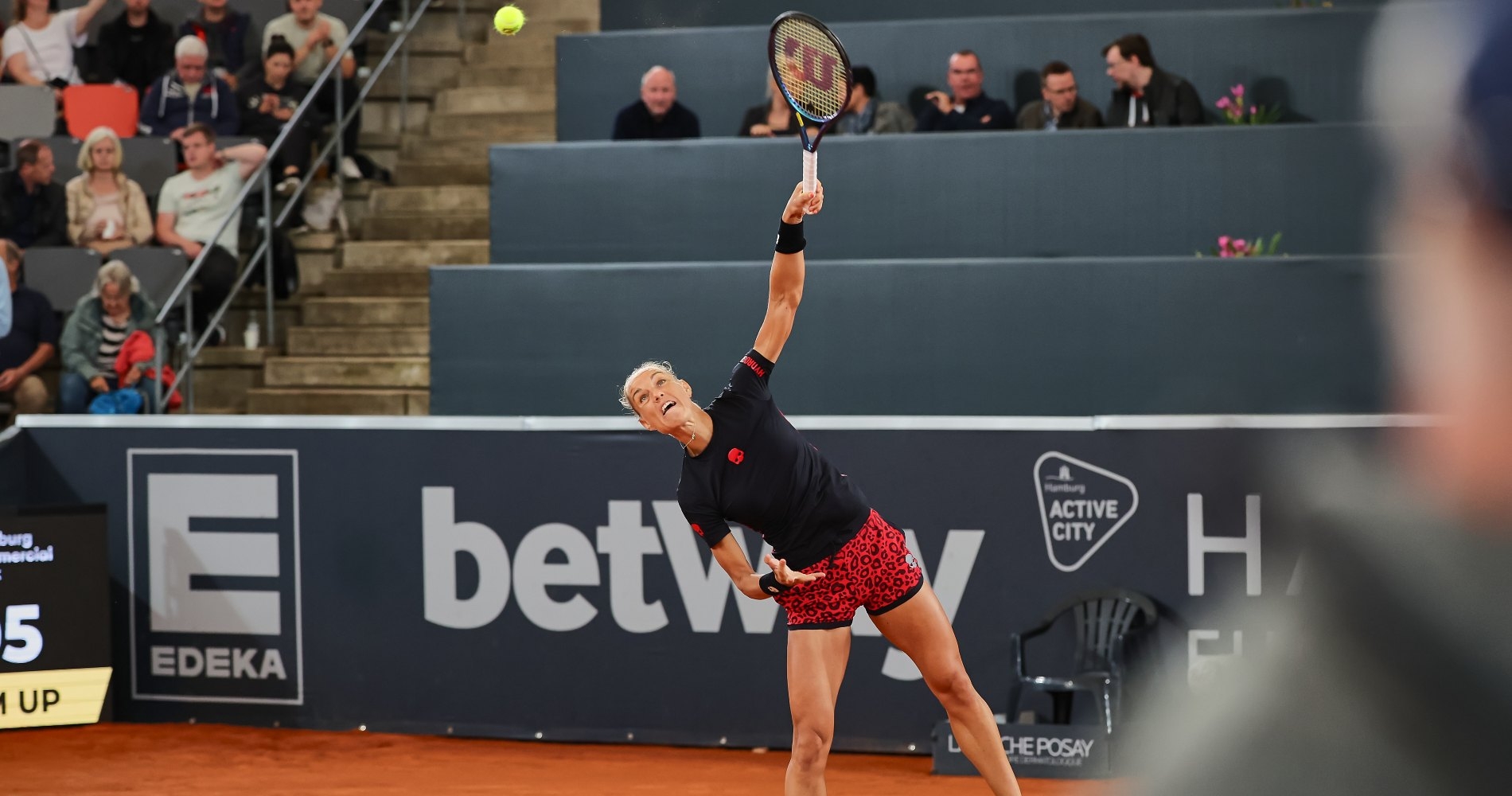
“The way you are in Spain is very different compared to the Netherlands,” said Rus, who says she understands everything in Spanish but needs a bit of work on the spoken side. “A lot of things is different. The way of working, the way of living. So I had to completely change the mindset, the days to work days, but I think it made me more strong.
“It’s like more hours of practice, more quantity, more strict, more discipline, a lot of things. But in the end, it makes you stronger. But in that moment, it was like, you know, you have to believe in the way. And when you see the results, it’s yeah, it’s like a relief, not a relief, but it’s reinforces the belief. We keep believing in the goal, keep believing in it and yeah, and this is the result.
“Second career”, new goals
At 32, Rus is in the latter stages of her career but having disappeared into the wilderness for a while, she doesn’t feel jaded. Instead, she’s been galvanised by the move to Spain, something reflected in her performances. She reached a career-high ranking of 41 earlier this month and now she has direct entry into the biggest events, the chances are good that she will go even higher.
“I was number one in juniors, I came up very fast, playing good, winning a lot of matches, and then I had four or five years, very difficult,” she said. “I went out of the top 200, even 280. So I feel like there are two different careers. Of course, I feel like I am already playing a lot of years, but on the other hand, it feels like I had kind of a break, not a nice break, but still a break.
“Now it is more easy to plan a schedule. You get into premiers (top-level events) and I think also I will play week in week out against higher players so also you learn from the matches even if you lose. I think that’s the next step to beat good players because if you beat good players you can get higher in the ranking.
“If I want to stay there or if I want to go higher, I should win matches in the premiers and in a Grand Slam. So I am working for that now to make a result in one of those tournaments because in the lower tournament it doesn’t make sense for the ranking and I want to go more high. That’s the next goal.”
People in this post
More tennis news
Tennis Majors launches new WhatsApp channel: Join us now!

“I can’t say it 100%” – Nadal not certain that 2024 will be his final Roland-Garros

Djere hires former Roland-Garros finalist Puerta as new coach

Stearns races past Sherif to win the Rabat Open title
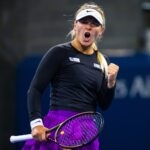
“Swiatek and Sabalenka inspire me” – Naomi Osaka

